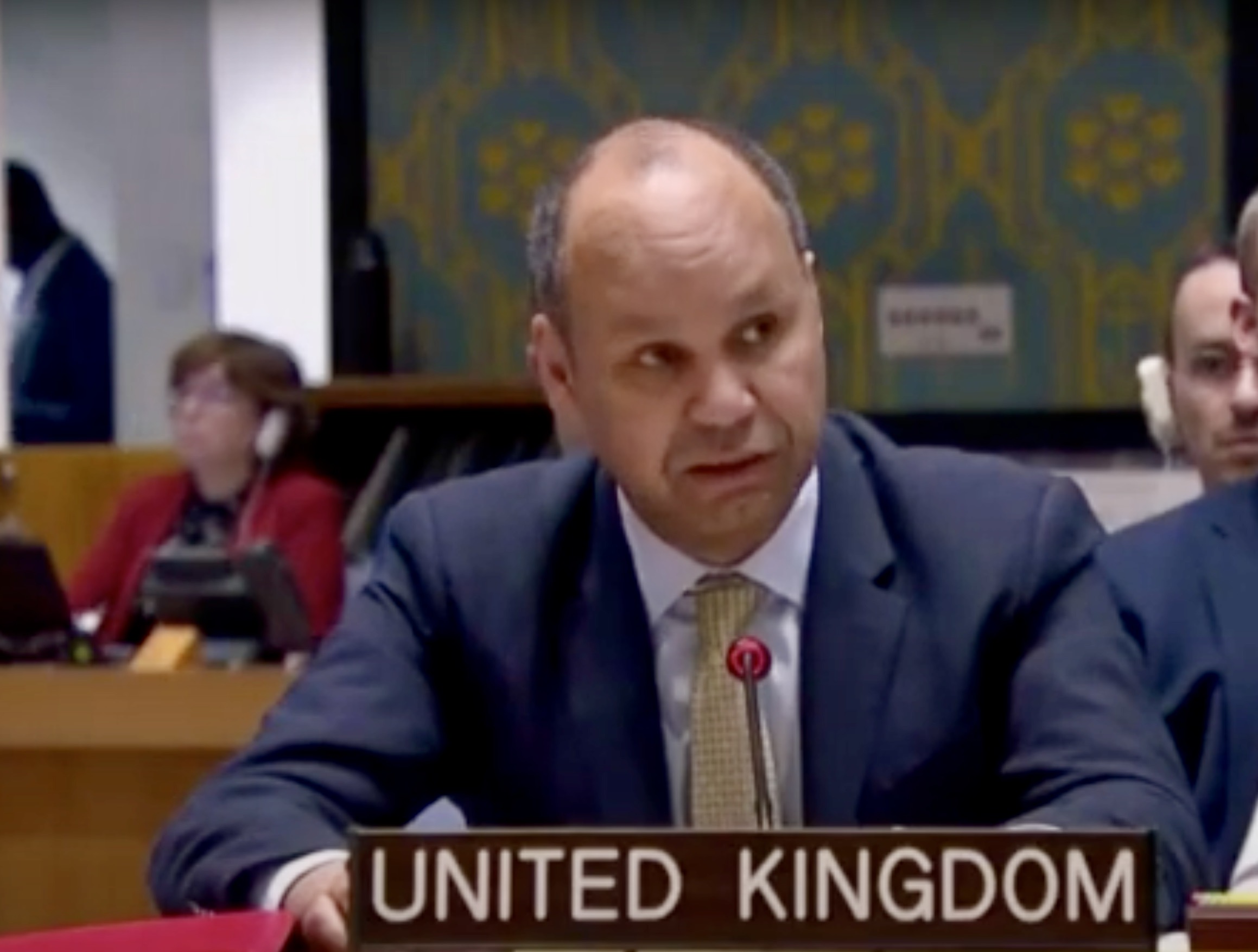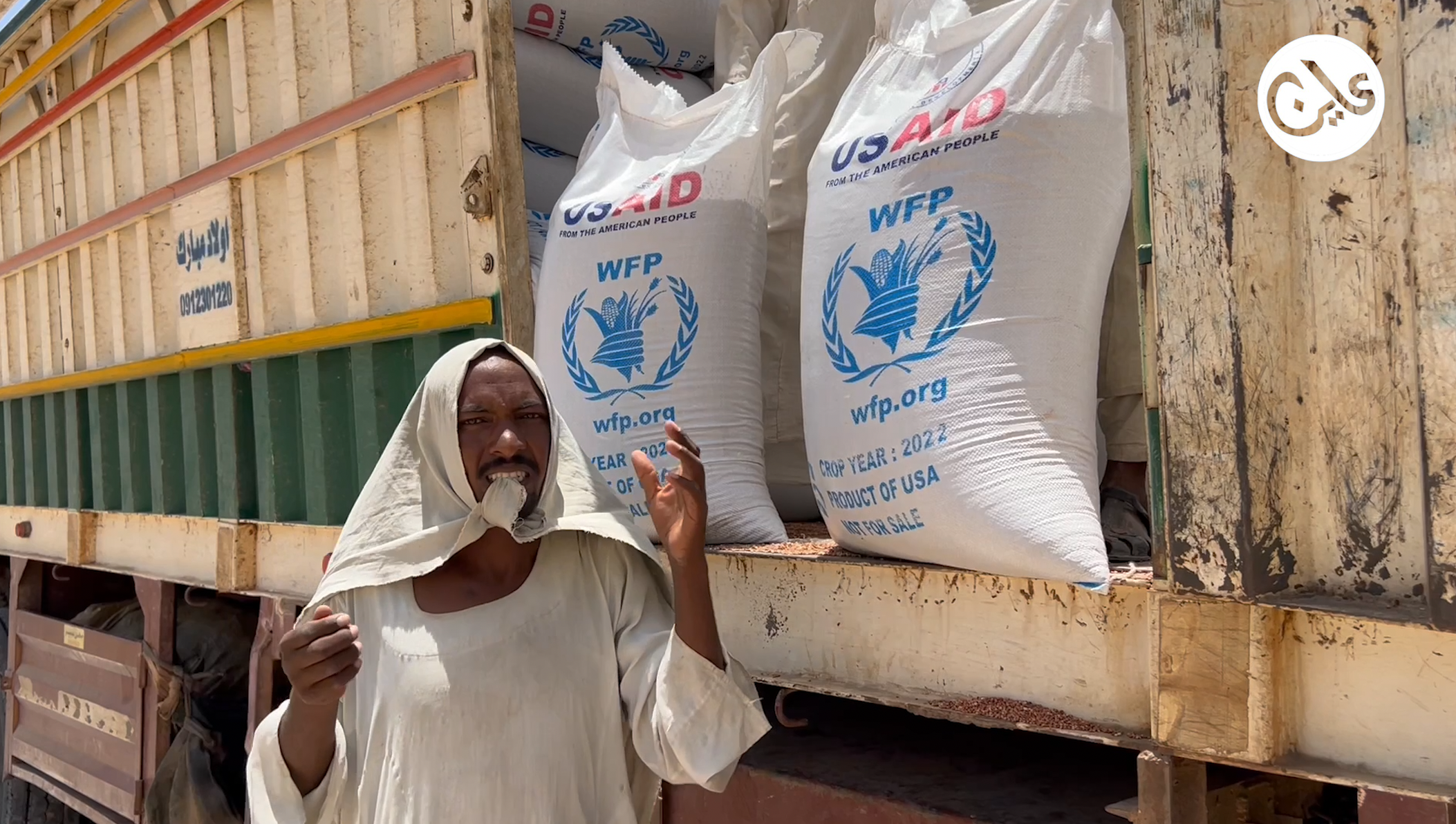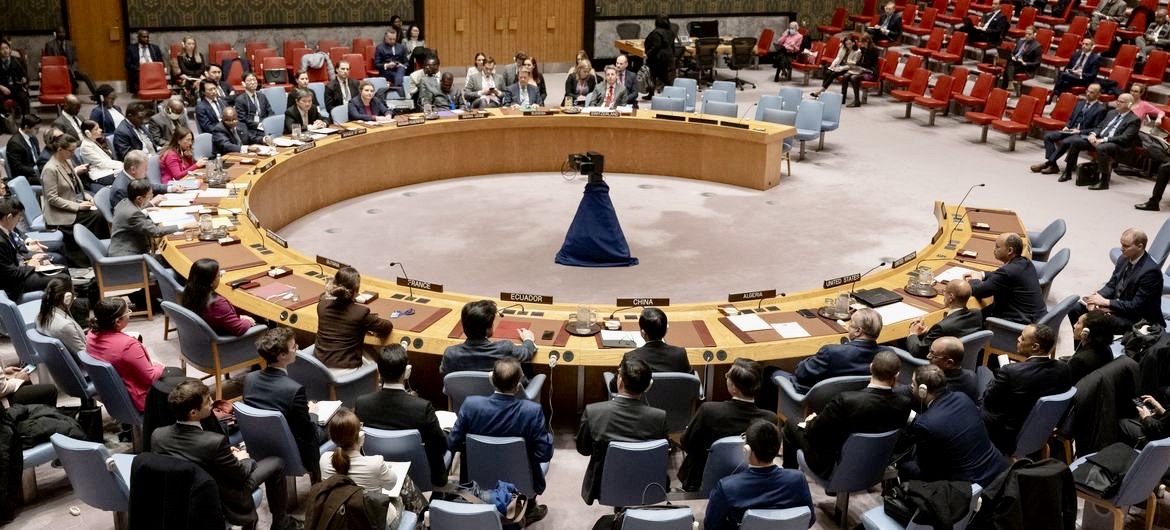Hope or hopeless: the UN resolution for the war’s respite in Ramadan
10 March 2024
In a move that revived Sudanese hopes for stopping the war and for humanitarian aid to arrive, the UN Security Council voted following Resolution 2724 to stop hostilities in Sudan during the month of Ramadan, which is scheduled to begin on Monday.
The resolution adopted by the UN Security Council from its headquarters in New York on Friday evening received 14 votes in favor, against one abstention. According to diplomatic observers, the resolution will not be binding on the two warring parties in Sudan – the army and the paramilitary Rapid Support Forces. “I call on all parties in Sudan to honour the values of Ramadan by honouring a Ramadan cessation of hostilities. This cessation of hostilities must lead to a definitive silencing of the guns across the country and set out a firm path towards lasting peace for the Sudanese people,” said UN Secretary-General António Guterres.

The Security Council resolution, authored by Britain, called on all parties to ensure the removal of any obstacles and enable unhindered access to humanitarian aid, including across borders and lines of contact, and to comply with their obligations under international humanitarian law.
Russia said the initiative was hypocritical since the security council had failed to call for an immediate ceasefire in Israel’s war on Gaza, because of the United States repeatedly wielding its veto to block resolutions.
“The double standards look particularly glaring given that those same countries are dragging out the adoption of a document on a ceasefire in the Gaza Strip, where a genuine massacre is taking place,” said Russia’s deputy UN ambassador, Anna Evstigneeva.
To many humanitarian actors working in Sudan, the declaration could not come fast enough. For nearly 11 months, Sudan’s army, and Rapid Support Forces (RSF) have fought a war of political and economic domination, where the Sudanese people have become the main targets. The World Food Program warned that roughly 18 million people in Sudan face emergency levels of hunger while the agency struggles with funding gaps and restricted access to those in need.

Warring parties’ lukewarm response
Sudan’s acting foreign ministry under the army, operating from Port Sudan issued a statement Friday evening, citing four conditions for a ceasefire –all of which pose sweeping demands that sources say will never be met ahead of the holiday period. According to the statement, the RSF must leave civilians’ homes they currently occupy, return looted goods, withdraw from Al Jazeera and Sennar states and all cities in Darfur, and stop all human rights violations –all in a matter of three days.
Militarily, the army may not benefit from a ceasefire, according to an analysis by the Sudan War Monitor, given their success in Omdurman, Sudan’s largest city, and its counter-offensive efforts in Wadd Medani.
In turn, the RSF welcomed the UN Security Council’s resolution and expressed their readiness to dialogue on agreed-upon monitoring mechanisms to achieve the required humanitarian goals. The RSF, in a statement, also supported a ceasefire to accelerate the arrival of humanitarian aid, accusing the Sudanese army of obstructing the transfer of aid to civilians to punish them for this. They also claimed the army had failed to adhere to prior truce agreements due to the multiple decision-making centres within the army, which they described as “brigades of the former regime.”

According to a former diplomat in the Sudanese Ministry of Foreign Affairs, Ambassador Al-Sadiq Makli, the resolution marks a turning point in the international community’s engagement in Sudan’s conflict. Maki believes the international consensus around the resolution will pressure the warring parties to adhere to the resolution. The ambassador told Ayin that any violation of the resolution would exacerbate the humanitarian catastrophe currently taking place in Sudan and increase further pressure from the regional and international community.
International relations researcher Ahmed Al-Rashid, however, says the UN resolution will have limited effect since the Security Council issued the resolution and left it on the table of the warring parties to decide whether to adhere to it. “The Security Council did not put enough pressure to make the decision possible and left the matter in the hands of the army and the Rapid Support –leaving the freedom of decision to them without influence, pressure or incentives.”


